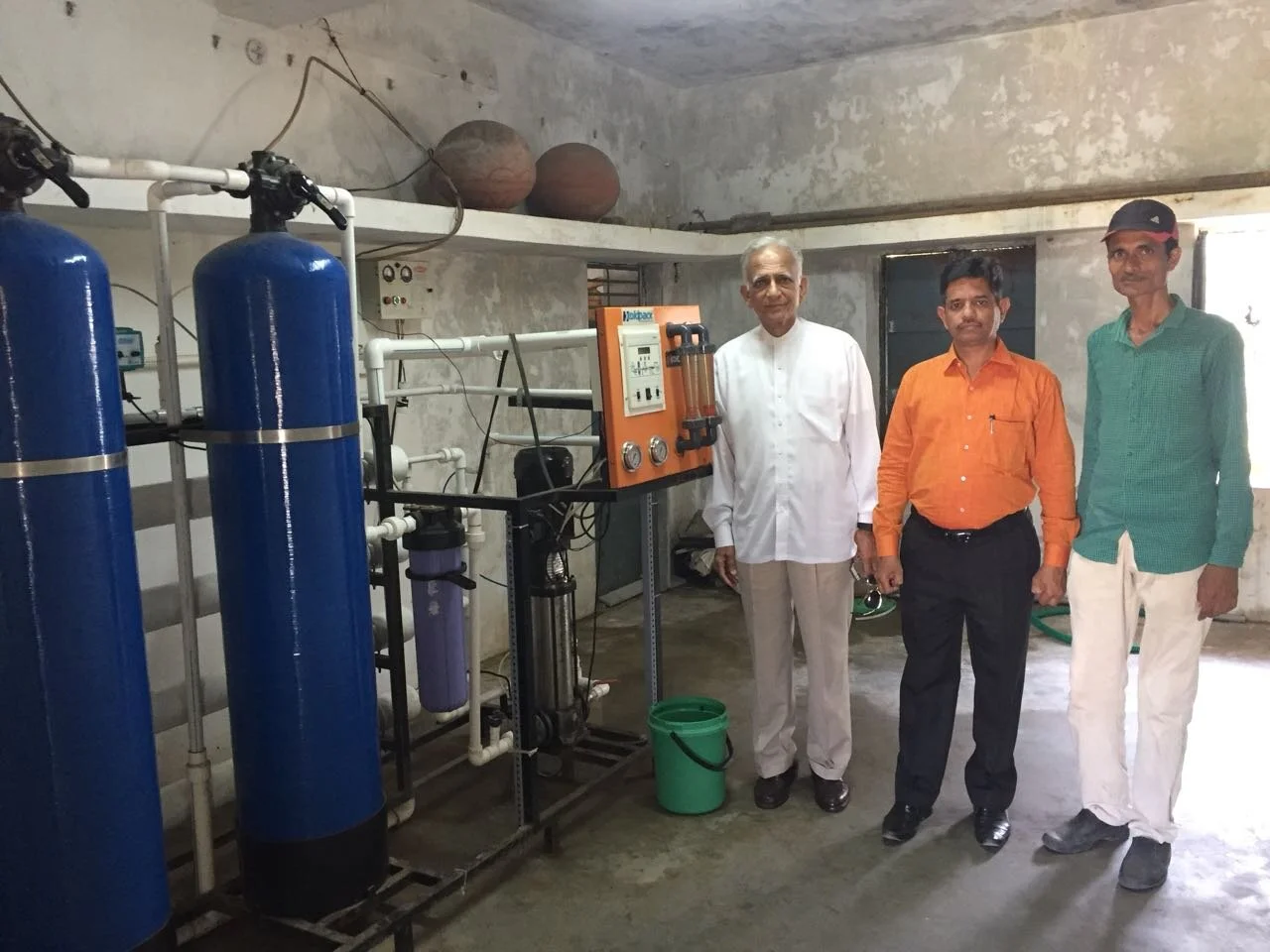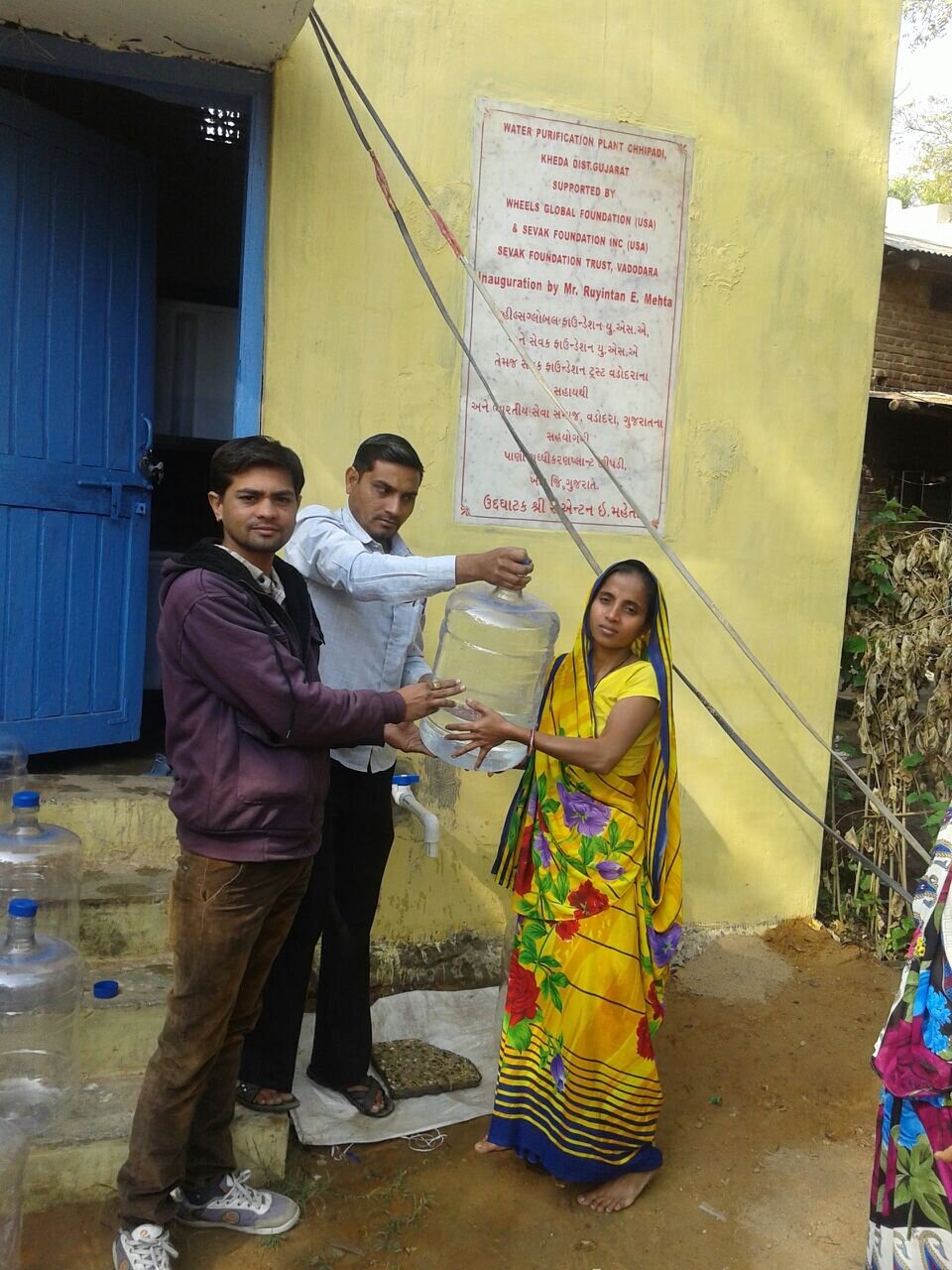Toilet Fabrication
Our Sevaks help provide sanitation services and education to rural community members across all operational villages. Sevaks also provide education on how to get government grants for toilets. They introduce community members to the relevant authorities and help with applications. More than 50% of the Sevak villages have doubled the number of toilets since inception.
Reverse Osmosis Water Treatment
As a result of our ongoing partnership with Wheels Global Foundation and Habitat for Humanity, the Sevak Project is able to construct reverse osmosis water treatment facilities in each of our operational villages, as well as provide employment opportunities for individuals to maintain these plants and distribute water to surrounding communities.
In villages where there is a high total deposit solid (TDS), reverse osmosis plants have been made available. This was possible because of the partnership with WHEELS Global Foundation USA, an IIT alumni organization based in Washington, DC, USA. They have provided the funding for the RO plants. We now have 10 Sevak villages with RO plants. The plan is to check water in all the Sevak villages. The RO plant in Agiya has resulted in fewer abdominal problems in school children and has made it easier to cook food for children. In Chandragadh, Morbi District, the prevalence of kidney stones and joint pains has decreased. Kidney stones decreased from 254 to 12 in over a year. See Case Study Below.
Case Study: Morbi
After visiting Morbi, a village in the Chandragadh district of western Gujarat, we discovered that 258 people out of the 1000 living there had kidney stones. It was clear that the water in the village was the most likely culprit. After further examination, we found that the TDS (total deposit solids) was around 1100 mg/liter, well above what is considered acceptable drinking quality.
With help from the Wheels Global Foundation, an IIT alumni based think tank and global foundation, we constructed a reverse osmosis water plant in Morbi to provide clean drinking water to the community. After one year of operation, there were no new cases of kidney stones, and a decreased prevalence across the village.
We have also seen progress in Agiya (Sabarkantha District) and Jalat (Dahod District). The RO plant in Agiya has resulted in fewer abdominal problems for school children, as a result of the cleaner drinking water.
Case Study: Kundal
In Kundal (Botad District) a 42 year old electrician lost both his upper arms and a lower leg through an electric current. Due to the lack of seated toilets, he had difficulty going to the bathroom. The Sevak in Kundal was able to get an accessible seated toilet constructed within a week.












